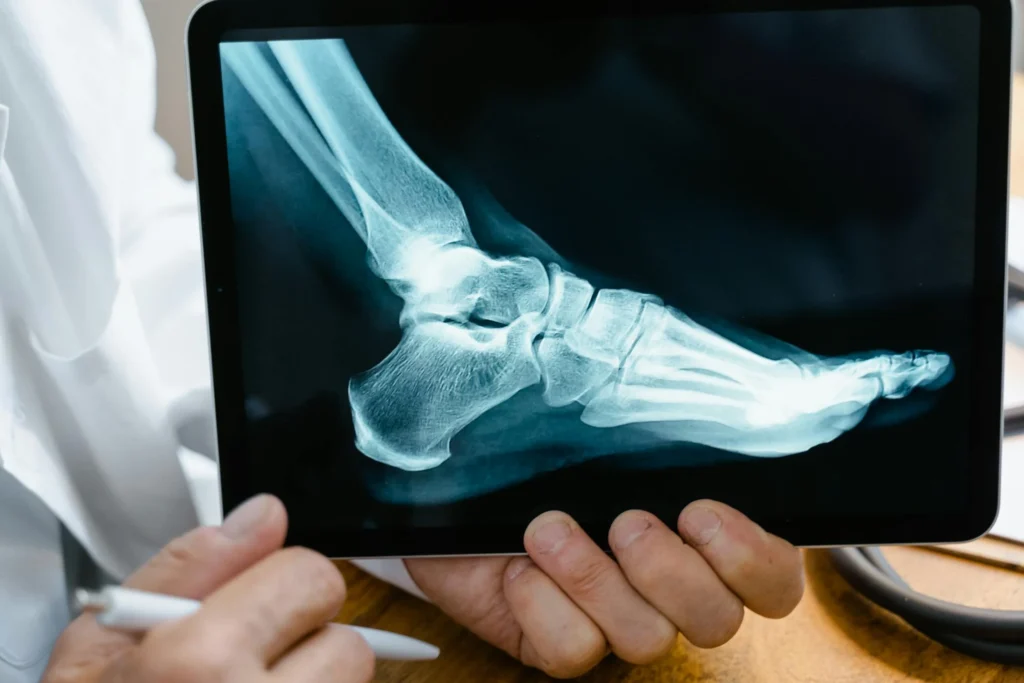New from the @EmoryCSHH News Team:
Manju Karthikeyan recommends Jaap de Roode's new book, "Doctors by Nature: How Ants, Apes, and Other Animals Heal Themselves" following its discussion on Health Storytelling for its unique insight into the ways animals medicate for pain and protection like humans.
The Triumphs and Fears Surrounding AI Usage by Clinicians
AI can revolutionize patient care, but only with patient buy-in.
By Harleigh Markowitz
Ellen Kaphamtengo was nine months pregnant when she suddenly felt a stabbing pain in her lower abdomen. Ellen and her mother rushed to the nearest hospital in Lilongwe, Malawi, as described in The Guardian in December 2024. The doctor at the hospital performed an ultrasound, which showed that the fetus was much smaller than expected for its age. This finding led to a series of further tests that required continuous fetal monitoring. Ellen was connected to a new fetal monitoring software that leverages artificial intelligence (AI) algorithms to detect abnormalities in fetal health rate. It detected that Ellen’s baby was experiencing potentially fatal cardiac abnormalities.
Within minutes, Ellen was rushed into an emergency c-section and delivered a healthy baby boy. The fetus’s cardiac complications likely would have gone undetected until it was too late to intervene if prompting from the AI-enabled fetal monitoring software had not been available. Ellen’s newborn son, Justice, would not be alive today.
Artificial intelligence, widely recognized by the abbreviation AI, is a sector of computer science that enables computer systems and machines to perform complex tasks that mimic human intelligence. There are several different types of AI models, such as machine learning and natural language processing, that can be trained to accomplish a wide array of tasks ranging from simple automations to complex problem-solving.
AI gained popular recognition and mainstream use with the release of generative AI tools such as ChatGPT and Meta AI in 2023, though early integration of AI systems in major industries dates back to the 1980s. For example, the adoption of AI-powered voice-to-text technology in the healthcare industry in 1994 revolutionized clinical documentation by allowing providers to dictate notes directly into the patient’s electronic medical record with remarkable accuracy. New advancements in AI technology promise to be even more transformative, such as new machine learning models that demonstrate the potential to predict individual patient outcomes and develop personalized treatment plans using the patient’s medical history.

The continued integration of AI systems in healthcare has the potential to streamline clinical diagnoses and improve patient outcomes. Many patients, however, remain skeptical due to concerns regarding over-reliance, provider accountability, and ethical constraints. A study conducted by the Pew Research Center revealed that 60% of adults would feel uncomfortable if their healthcare providers relied on AI to diagnose conditions and develop treatment recommendations, yet the majority of respondents believe that the implementation of AI would improve clinical accuracy and reduce racial and ethnic bias in healthcare.
The use of AI tools in healthcare is not a new phenomenon, and, as the technology continues to improve, its scope is expected to expand considerably in the coming decades. Greater transparency and responsible use in clinical practice can improve public perception of AI and its potential to revolutionize modern healthcare.
“AI is the future in healthcare,” says Dr. Barbara Podwall, a board-certified radiologist in Long Island, New York. “It helps to streamline our work and improve the workflow. We’re nearing the point where [radiologists] that don’t use AI in their daily practice are going to get left behind.”
The earliest integration of AI in diagnostic radiology dates back to 1992 when computer-aided detection systems (CAD) were used to detect calcium deposits in mammography. Specific patterns of these deposits can signal early stages of breast cancer.
The use of AI in diagnostic radiology has evolved to include a variety of medical imaging techniques over the past thirty years, such as x-rays, ultrasounds, magnetic resonance imaging (MRI), and computed tomography (CT) scans. The 2010s marked widespread adoption of AI technology in radiology departments across the United States. A study conducted by the American College of Radiology in 2020 found that approximately 34% of radiologists in the United States used AI technology in their clinical practice.
The percentage of healthcare providers routinely using the technology will continue to grow, as large hospital networks continue to adopt AI software in clinical care settings. For example, in July 2023, Northwell Health announced a partnership with Aidoc, an Israeli medical technology company, to integrate clinical AI solutions software into seventeen of its New York hospitals. Aidoc’s groundbreaking AI radiology platform works to streamline workflow by analyzing medical imaging, identifying abnormalities, prioritizing findings, and activating care teams when necessary. Today, over 1,200 healthcare systems use Aidoc’s AI technology.
“One thing that it’s very good at picking up on is finding pulmonary emboli in the lungs,” says Podwall, who works at Northwell Health and uses Aidoc in her daily clinical practice. “On every abdominal and pelvic CT that we read, AI looks at the lung bases to make sure that the arteries on the bottom of the lung don’t have blood clots in them. I recently had a case where the patient was presenting with abdominal pain, but the AI software detected pulmonary emboli in her lungs and flagged it for immediate attention.”

The integration of AI into mainstream clinical care has the capacity to transform patient care and improve health outcomes by facilitating faster diagnoses and optimizing treatment plans. Many individuals, however, remain skeptical of its use. They believe is a risk that clinicians will become overly reliant on AI technology and disregard their clinical expertise as AI models become increasingly more sophisticated and capable of making complex medical decisions.
Patients have also expressed fear that such an overreliance on AI in clinical practice will erode the patient-provider relationship. Clinician’s empathy is an integral part of patient care with a profound influence on patient outcomes. AI technology does not possess the empathy or emotional depth that constitutes human interaction. According to the Pew Research Center, 57% of Americans believe that the use of AI to determine diagnoses and recommend treatments would harm the patient-provider relationship, while only 13% individuals believe that the use of AI would strengthen that relationship.
“The worry is that humans will be increasingly extricated from the equation,” says John Banja, PhD, a medical ethicist and Professor at the Center for Ethics at Emory University specializing in artificial intelligence. “There are some people who will say that they don’t want a machine dictating their medical care. They want human clinicians to be the ones making their diagnoses, not computer software.”
Additionally, the integration of AI in medical care has the potential to pose unique ethical dilemmas. There can be disagreements between the AI model and clinician expertise. For example, recent developments in AI technology demonstrate promise for detecting early signs of cancer that doctors cannot see on medical imaging. However, these new technologies are not infallible, with accuracy ranging from 86% to 94% according to a study published in the Journal of Clinical Oncology.
Patients fear that doctors will overrule their clinical expertise in favor of AI models that are not free of error, especially in life-threatening situations. “Certainly, one of the things I think that the healthcare provider should do in an instance [of disagreement] is take it to the patient,” Banja says. “The most important thing we can do is keep the patient and his or her family in the loop.”
AI has the potential to revolutionize healthcare when used responsibly and with the establishment of clear ethical guidelines and principles in healthcare systems. The continued integration of AI in healthcare is poised to usher in a new era of medicine, from improving patient outcomes to automating administrative tasks to aiding in drug discovery.

